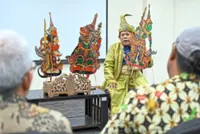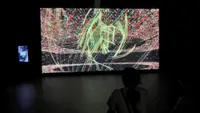Surviving a global pandemic, dealing with the death of loved ones and finding hope in dark times may sound all too familiar to us, especially in these Covid-19 times.
These desperate circumstances are also faced by the characters in theatre director Tung Jit Yang’s virtual play Unity (1918).
Already a subscriber? Log in
The Star Festive Promo: Get 35% OFF Digital Access
Cancel anytime. Ad-free. Unlimited access with perks.
Related stories:
- Theatres, performing arts events allowed with live audience from March 10
- Neil Gaiman’s ‘Chivalry’ to get the graphic novel treatment this September
- KL Photoawards 2021: a time to define our individual identity and sense of self
- Shaq Koyok's art reflects a personal and political drive to share his Orang Asli heritage
Follow us on our official WhatsApp channel for breaking news alerts and key updates!
Thank you for your report!





